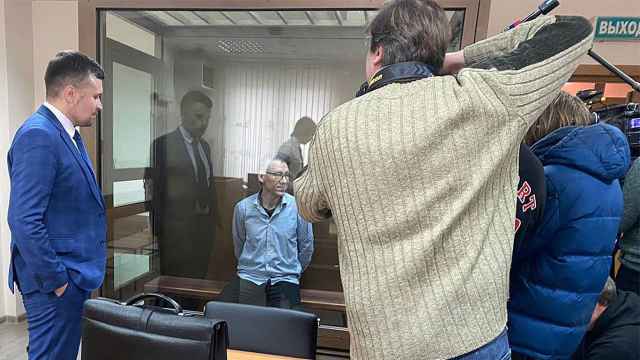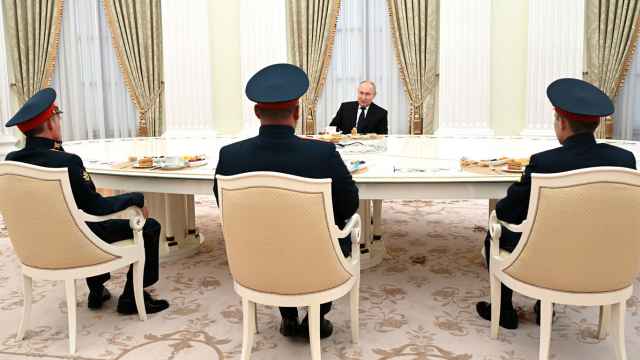Kremlin critic Vladimir Kara-Murza was removed from his prison in Siberia and is being transferred elsewhere, Reuters reported Wednesday, citing Russia's prison service.
Prison authorities told the agency that Kara-Murza, who is serving a 25-year prison sentence for treason and other charges, was removed from the IK-16 penal colony in the Omsk region and sent to an unspecified destination.
The FlightRadar24 aircraft tracking portal showed a charter flight traveling from Omsk to Moscow, but it was unclear if this flight was connected to Kara-Murza's reported transfer.
Kara-Murza had been scheduled to attend a court hearing in Omsk on Thursday.
Independent broadcaster TV Rain reported earlier Wednesday that the activist's lawyer had been barred from meeting with him in recent days.
Kara-Murza, a dual Russian-British national, was hospitalized earlier this month. His lawyer Vadim Prokhorov said his client "suffers from a severe chronic disease that prevents him from serving his sentence in a penal colony."
His reported transfer comes as several other political prisoners jailed in Russia have been reportedly moved to unknown locations in recent days, fueling speculation that Moscow is preparing a large-scale exchange with Western governments.
Kara-Murza was arrested in April 2022 after he publicly criticized Russia's invasion of Ukraine and pressed Western countries to impose sanctions against the Kremlin.
From behind bars, he has continued to campaign against Putin and urged Moscow to investigate his claims of having been poisoned.
But his family and supporters have raised alarm over his health, which is said to have deteriorated in prison due to a nerve condition he sustained after surviving two poisoning attempts in the 2010s.
A Message from The Moscow Times:
Dear readers,
We are facing unprecedented challenges. Russia's Prosecutor General's Office has designated The Moscow Times as an "undesirable" organization, criminalizing our work and putting our staff at risk of prosecution. This follows our earlier unjust labeling as a "foreign agent."
These actions are direct attempts to silence independent journalism in Russia. The authorities claim our work "discredits the decisions of the Russian leadership." We see things differently: we strive to provide accurate, unbiased reporting on Russia.
We, the journalists of The Moscow Times, refuse to be silenced. But to continue our work, we need your help.
Your support, no matter how small, makes a world of difference. If you can, please support us monthly starting from just $2. It's quick to set up, and every contribution makes a significant impact.
By supporting The Moscow Times, you're defending open, independent journalism in the face of repression. Thank you for standing with us.
Remind me later.






